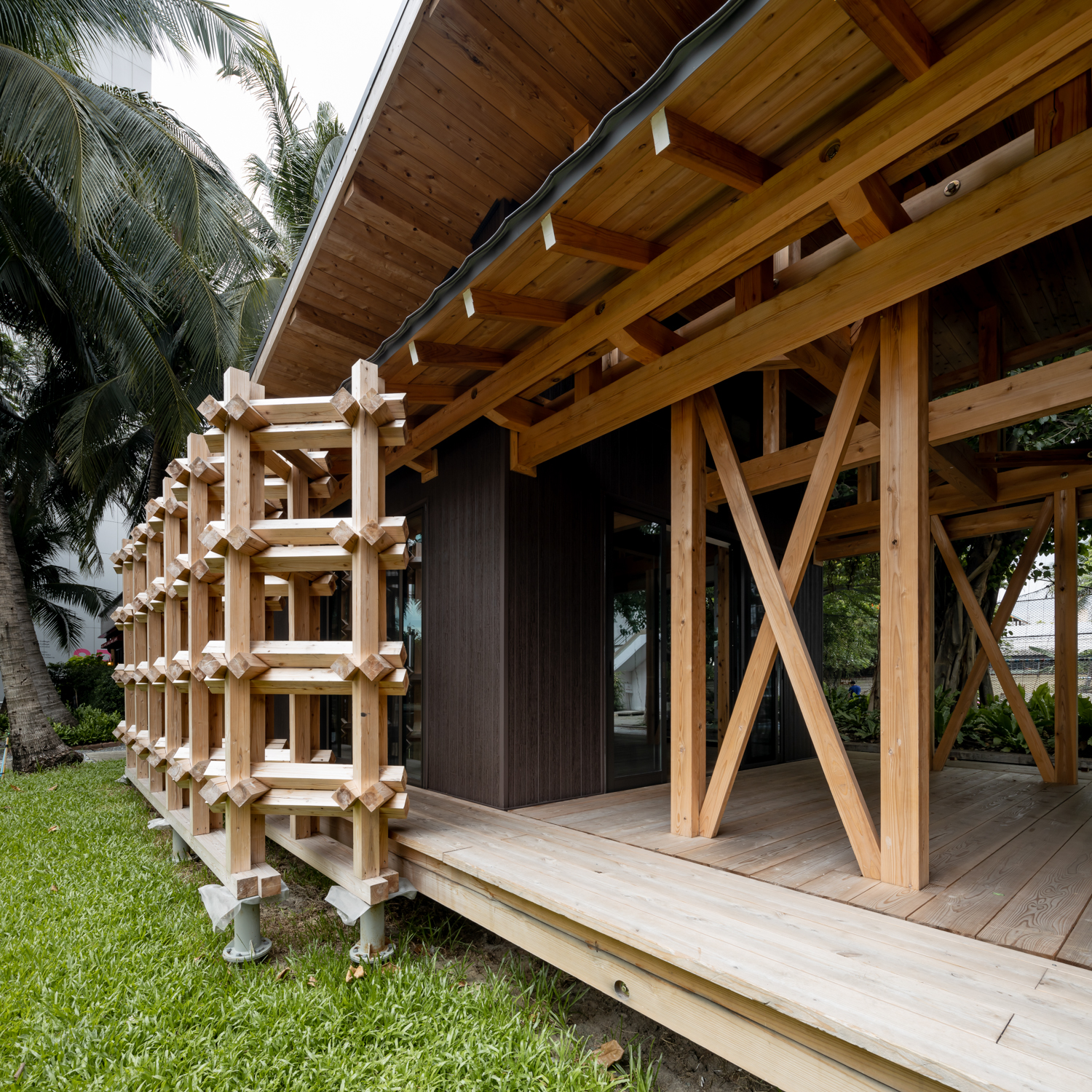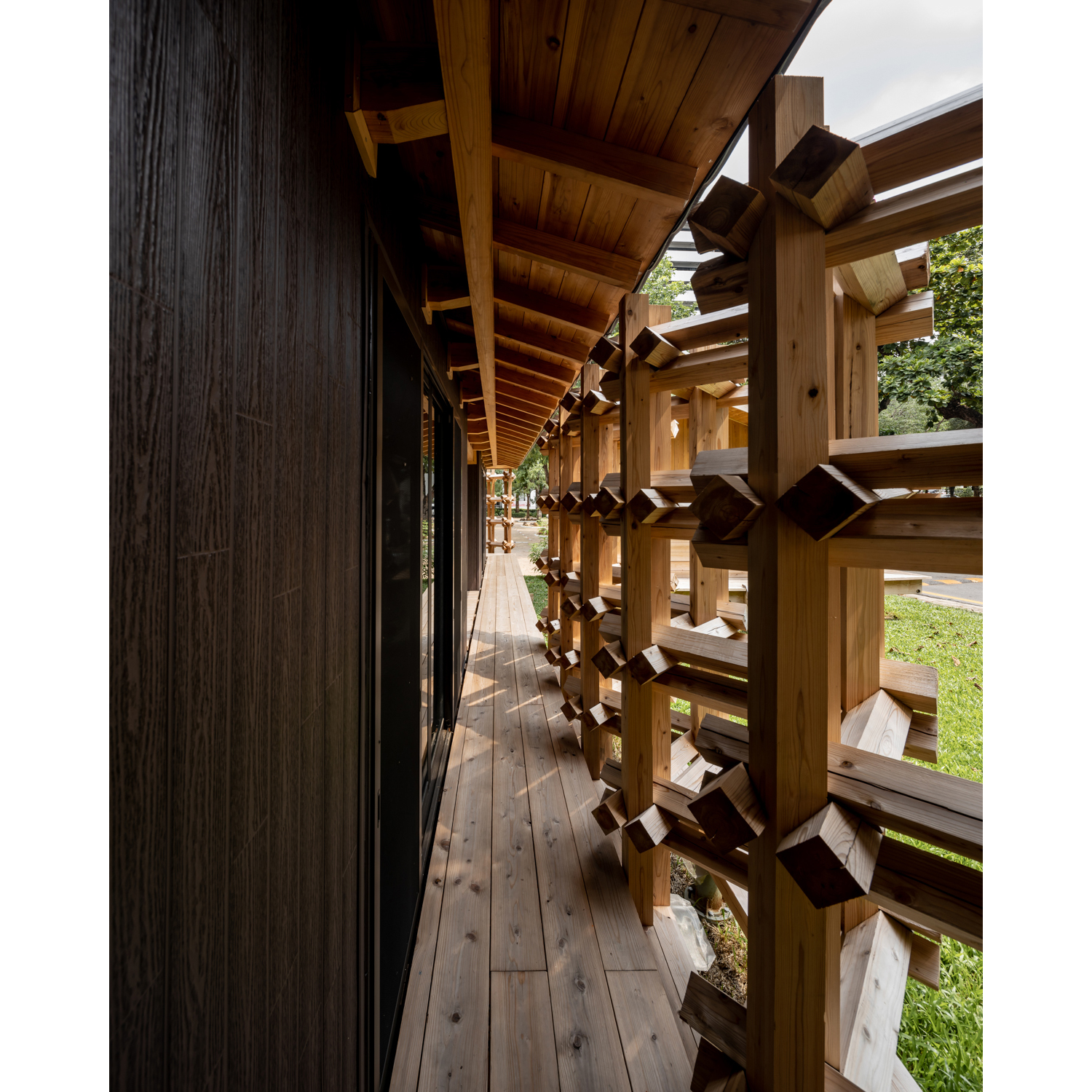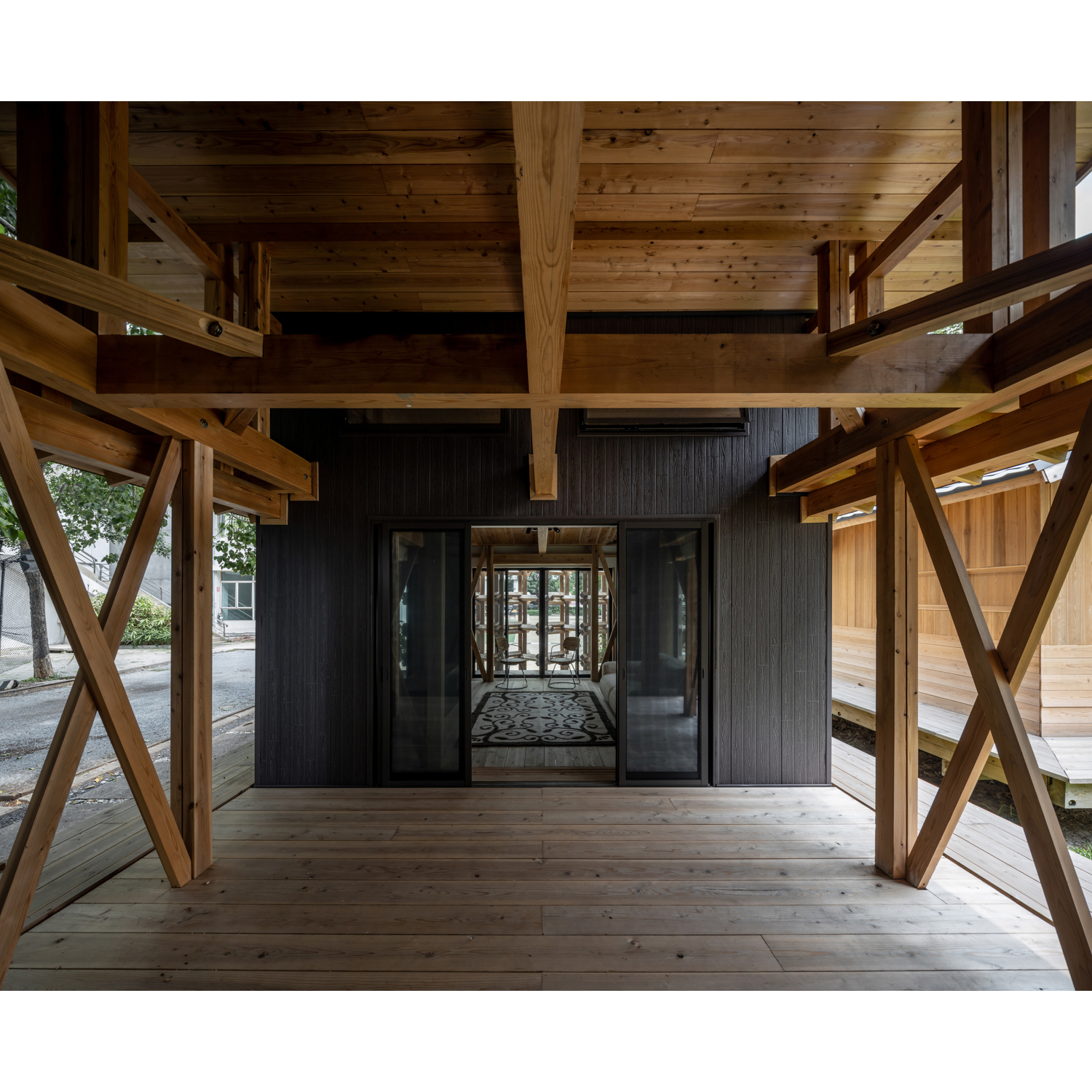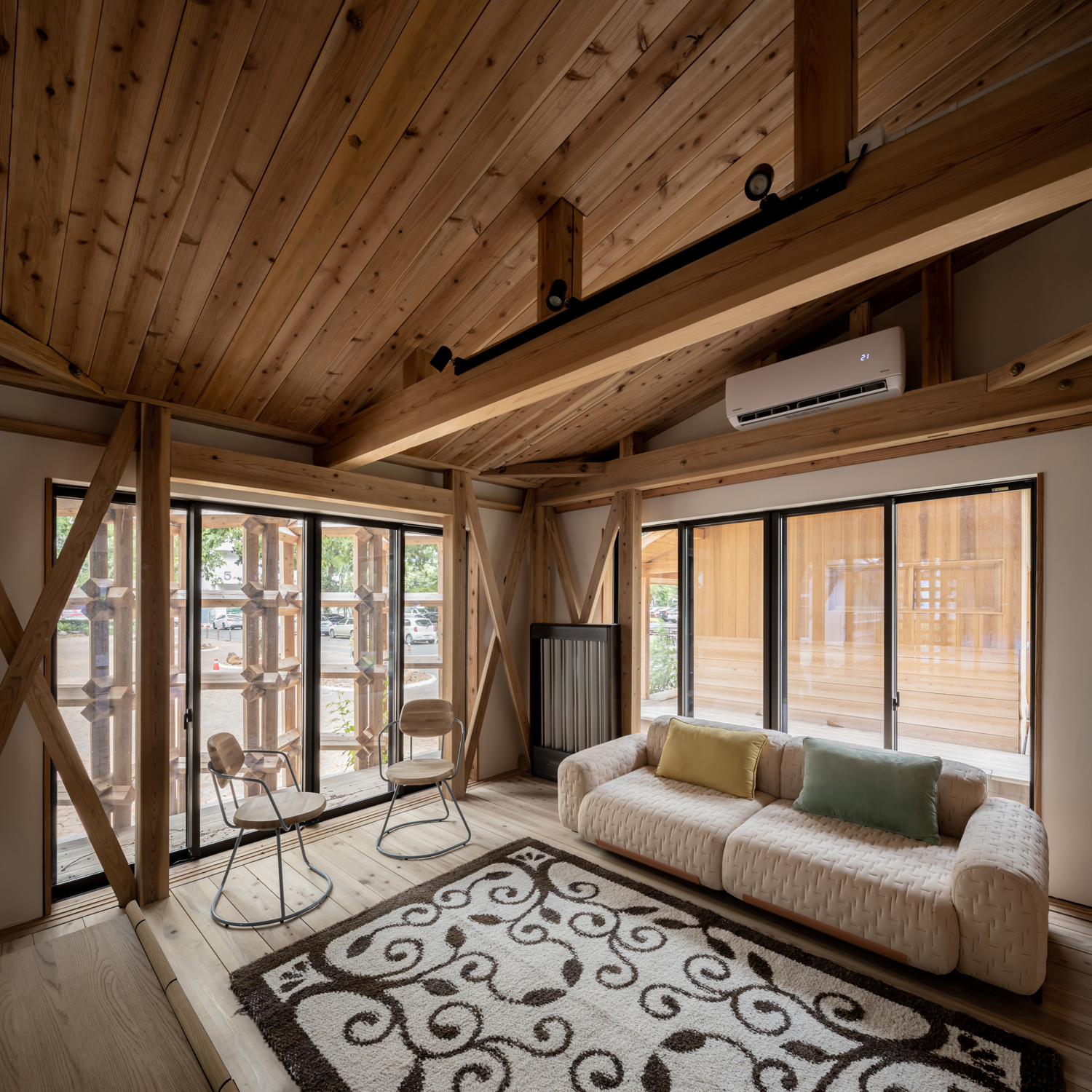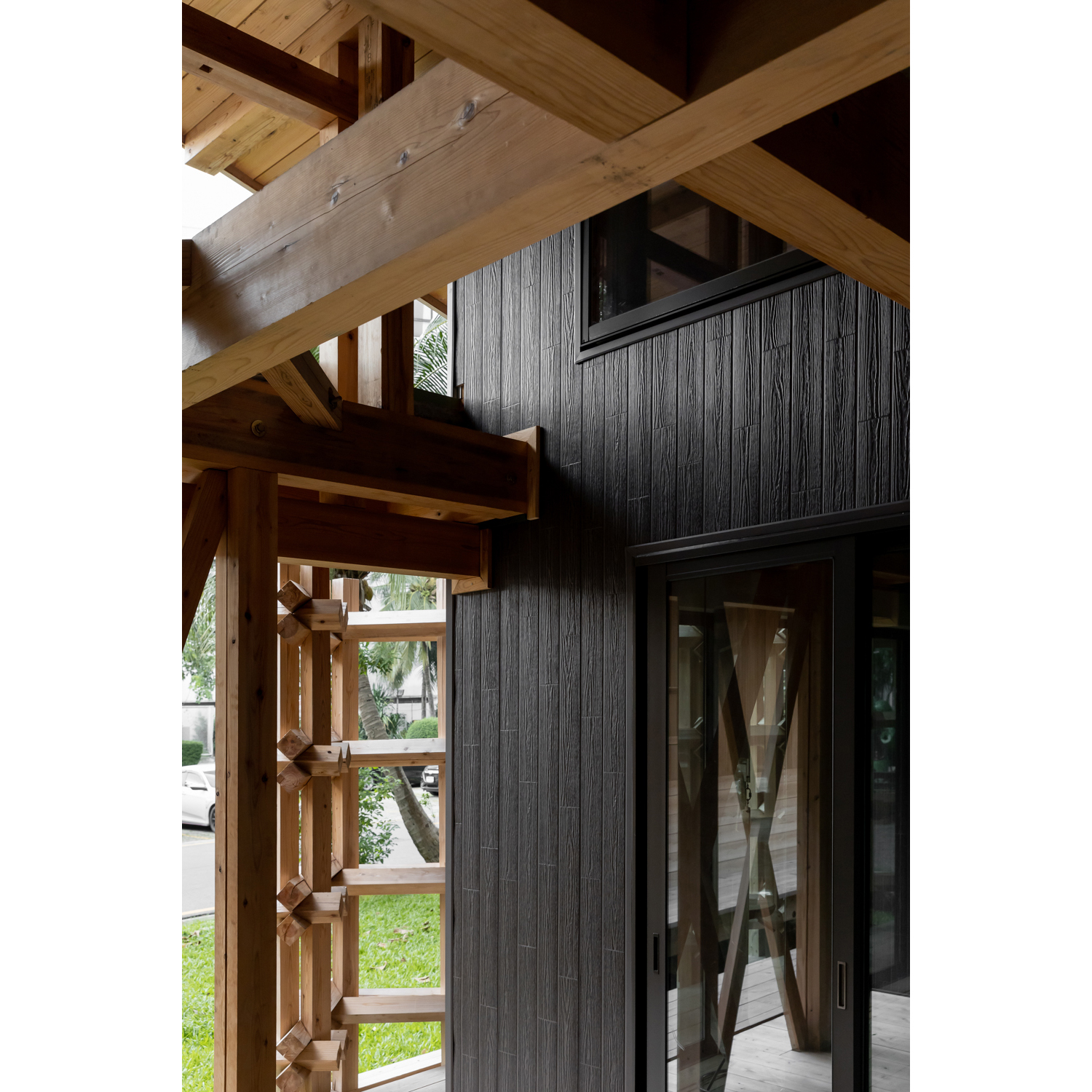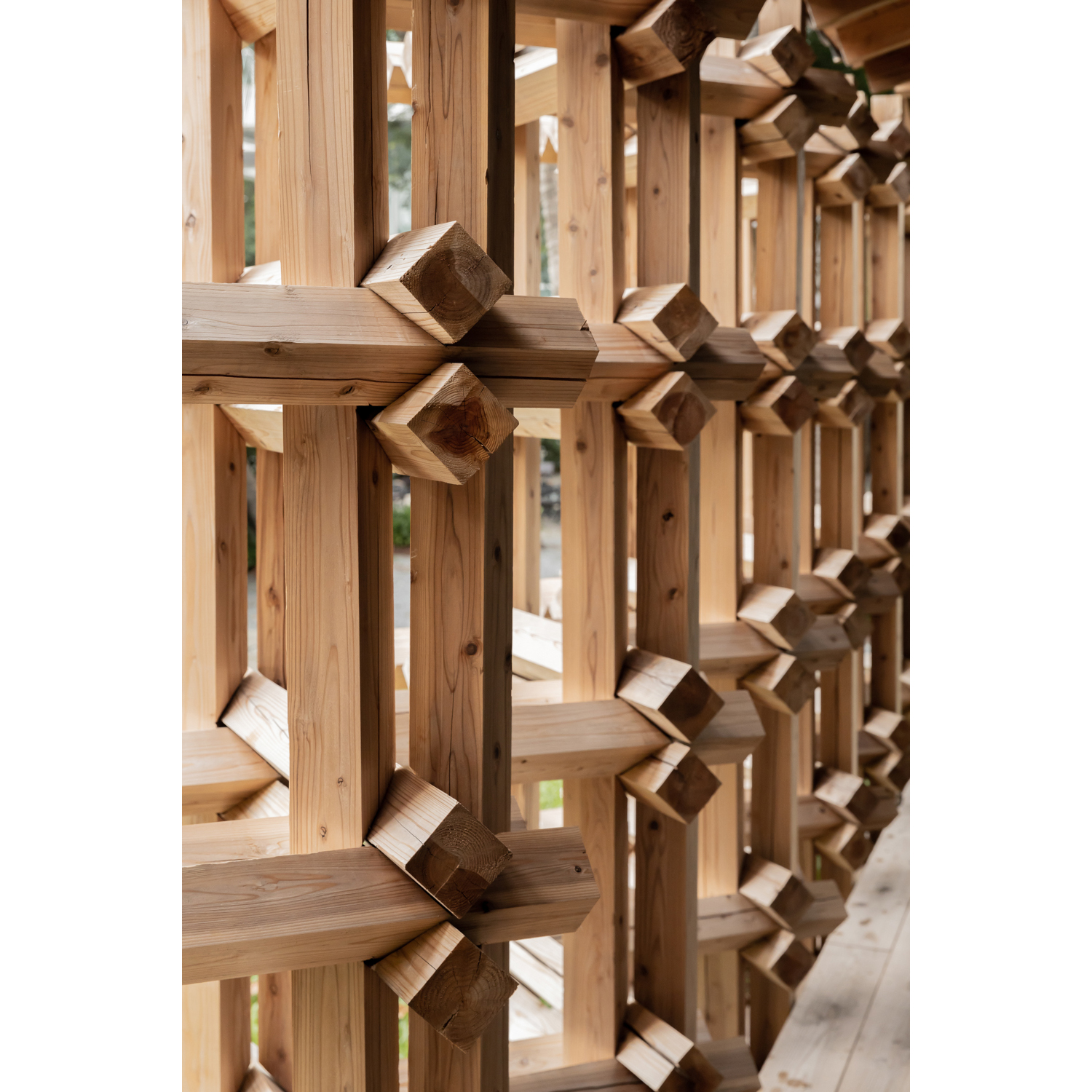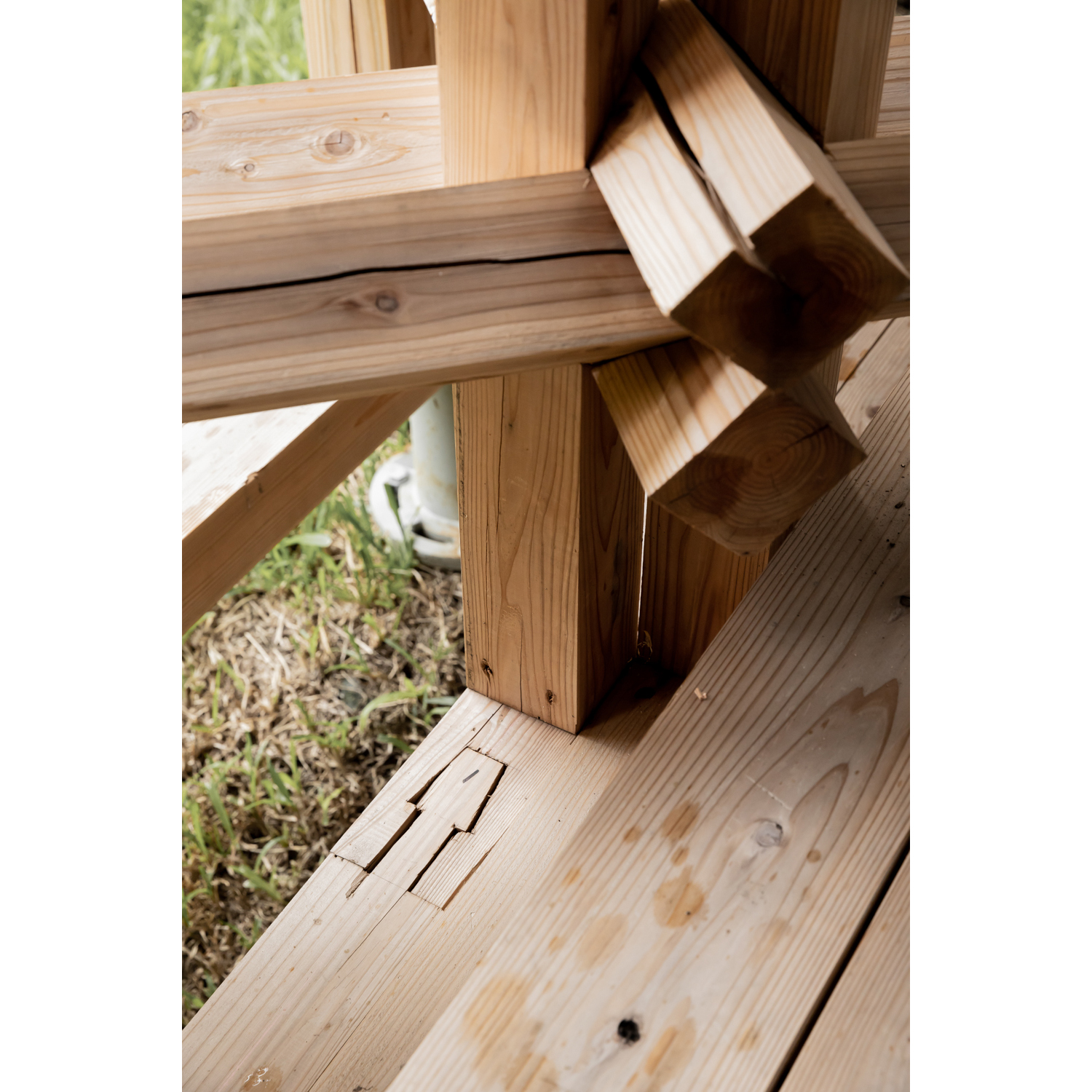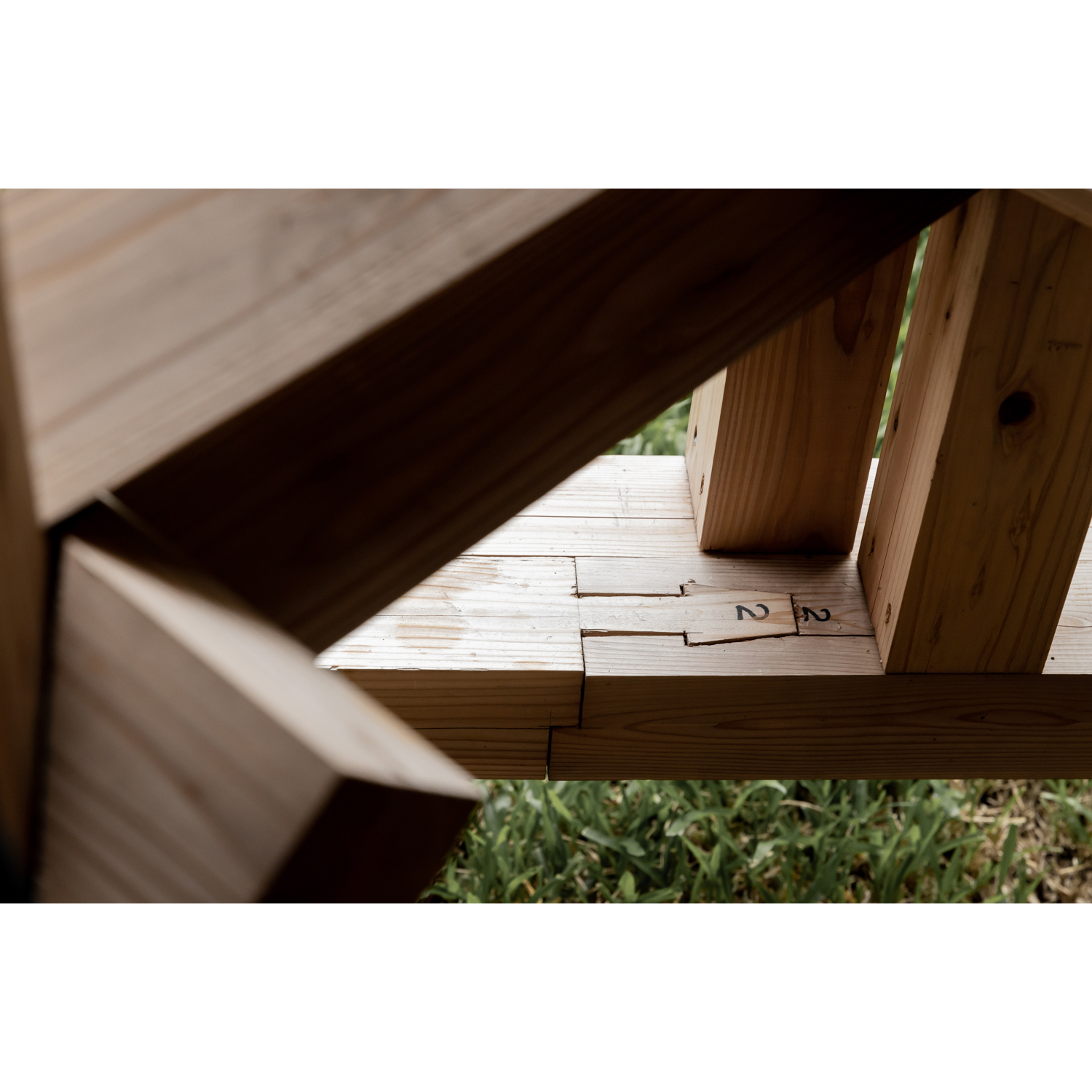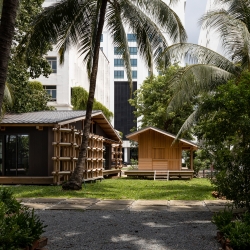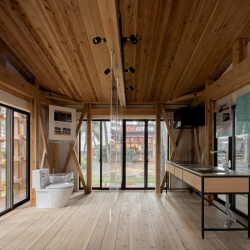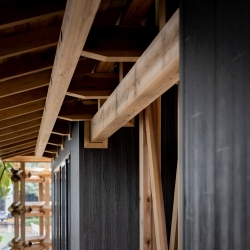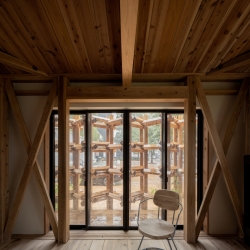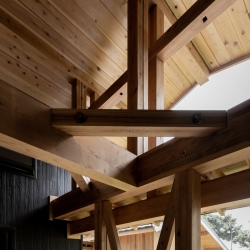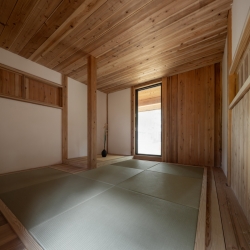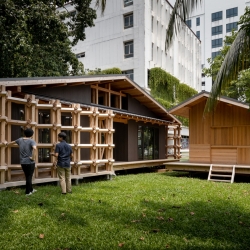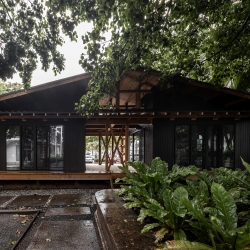IN THE COLLABORATION WITH THE SCHOOL OF ARCHITECTURE, SRIPATUM UNIVERSITY, SUGIYAMA JOGAKUEN UNIVERSITY, AND MITSUE VILLAGE, SUGI LOGS HAVE BEEN TRANSPORTED TO THAILAND TO BE USED IN ASSEMBLING THE JAPANESE TEA PAVILION IN SRIPATUM UNIVERSITY
TEXT: NAPAT CHARITBUTRA
PHOTO: KETSIREE WONGWAN
(For Thai, press here)
The use of timber in architecture has repeatedly been questioned as there are growing concerns in regards to deforestation, forest degradation, etc. However, this is not the case for Mitsue Village in Nara, Japan where the reforestation system has been impeccably arranged, which actually causes an oversupply of Sugi cedar wood instead.
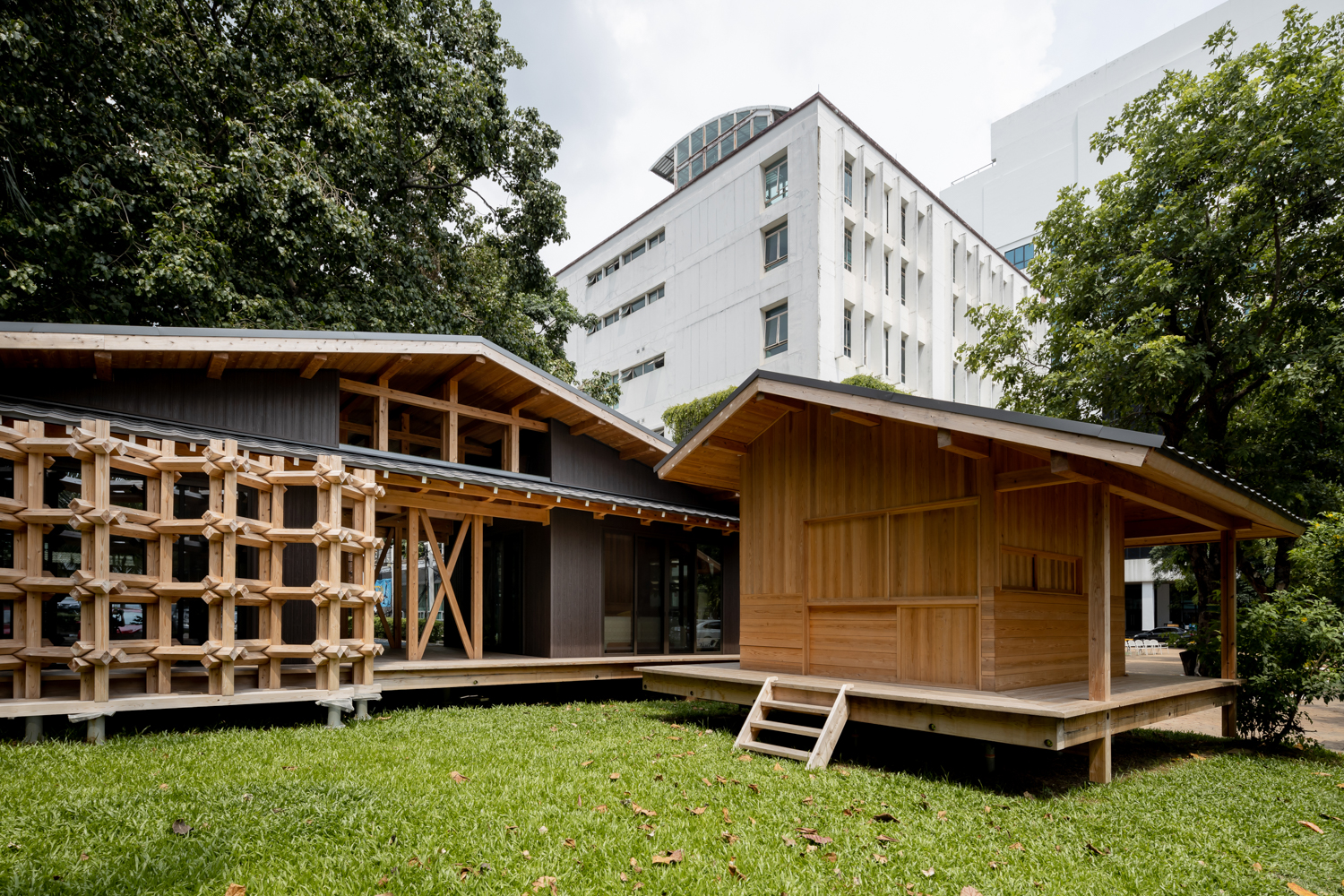
In the collaboration with the School of Architecture, Sripatum University, Sugiyama Jogakuen University, and Mitsue village, Sugi logs have been transported to Thailand to be used in assembling the Japanese Tea Pavilion in Sripatum University since February of this year.
Apart from being a flexible platform for holding student activities, outdoor classes, or exhibitions in the future, the pavilion is also used as a study material in the construction class of the School of Architecture. Kritsada Arnphothong, Assistant to the Dean for Administration and Special Affairs, told art4d that the pavilion is interesting in its construction details as every piece of wood is cut, labeled with numbers, and even provided with assembling instructions. “Even though the chief technician from Japan also came here, at first, as Thai people, we were truly perplexed by tools and construction details. We could see some assembling points which were strange and imperfect. But this also exhibits that each culture has its own unique timber construction techniques.”
Despite the pavilion being completely built already, we could still examine the assembling details of the structure, for example, thin notches preparing for timber expansion or Japanese-style joinery details in the façade and roof structure. Besides that, there is a small pavilion, reproducing a tea house on a real-life scale, and it has a distinct scent of Sugi which is different from typical Cedar aromas. There is no need to be in Japan anymore, we can now witness a true Japanese style house and study its construction details right at Bang Bua BTS Station.


